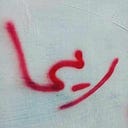“We don’t want to die of thirst, but we don’t want to betray: normalization is a big betrayal.”

“Let Wadi Araba Treaty fall.”
Yesterday, I participated in demonstrations in downtown Amman against the latest step taken by the Jordanian government to normalize relations with Israel through yet another U.S.-brokered deal, this one ostensibly as a response to climate change.
The deal is for Jordan to receive 200 million cubic meters (7.06 billion cubic feet) of desalinated water from Israel. In return Israel would get 600 megawatts of electricity generated from a UAE-funded solar energy plant in Jordan. This agreement is the brainchild of Jordan’s EcoPeace, an Israeli-Jordanian-Palestinian non-governmental “peace-building” organization — one of those normalizing NGOs that flourished during the Oslo “peace process” and linger on.
In the defunct language of the defunct “peace process,” Jordan’s EcoPeace Director Yana Abu Taleb avowed: “We need to look at projects of cooperation like this, for the benefit of our people; We need to rebuild healthy interdependencies.” U.S. Climate Envoy John Kerry, who was present at the signing of the project’s “declaration of intent” in Dubai along with Jordan’s water minister, Israel’s energy minister, and the UAE’s climate change minister, also spoke of the huge impact of the agreement on “Jordan’s effort at climate adaptation.” Both spread the fake news that the agreement was all about the environment and had nothing to do with politics.
Not so the demonstrators in Amman whose passionate and angry chants rejected the deal and called for the liberation of Palestine with full understanding of its political context, which is that of the Wadi Araba Treaty of 26 October 1994. The Jordanian public had overwhelmingly opposed this treaty then, which predictably (like the Oslo “peace process”) has not worked in favor of the country or its people and has affected Jordan negatively on various fronts as activist Azzam Tamimi and political analyst Lamis Andoni pointed out.
Some of the chants in the following video clip say:
Normalization is Betrayal; Wadi Araba is Betrayal; Surrender is betrayal; Palestine is the land of Islam; God is great and praise be to God (الله اكبر وله الحمد).
Some of the posters say:
“We don’t want to die of thirst but we don’t want to betray; normalization is a big betrayal.”
“Let Wadi Araba Treaty fall.”
The demonstrators also rejected the vaunted environmental benefits the deal is supposed to bestow on Jordan with head of Jordan’s Environmental Union Omar Sushan explaining: “We need to strengthen our national water network, build public awareness about water management, and use new methods of irrigation in Jordan. This is our strategic option. We cannot rely on Israel.”
Jawad al-Anani, Jordan’s former deputy prime minister for economic affairs also pointed out that “it is more secure for Jordan to get desalinated water for drinking purposes … from Jordan, rather than Israel.”
It is clear that, as with the Palestinian Authority and the Palestinian people, the Jordanian government, led by King Abdullah, does not represent the demands and wishes of the Jordanian people. And it is clear that this agreement is not in the best interests of the Jordanian people either politically or economically and environmentally.
In the following video clip, you can clearly hear chants of: “The whole government is [made up of] traders. الحكومه كلها تجار”. And in reference to the fact that the agreement had not been presented to Parliament as stipulated by Article 33 of Jordan’s constitution, which states that any agreement involving financial commitments to the Treasury is not valid unless approved by the National Assembly, some demonstrators held placards that said: “No tampering with the constitution لا للعبث بالدستور”.
Masar Badil, Palestinian Alternative Revolutionary Path Movement, has launched “a unified popular movement and an organized framework (the Council of Palestinian Organizations and Institutions) to lead the masses of our people, defend our national and human rights, liberate the potential of our Palestinian people, especially the younger generations, and strengthen their decisive leadership position in the next phase of struggle.” The movement understands very well that only resistance can ensure the restoration of basic values and ideas that will enable the masses to work together to realize their rights.
Resistance, as a way of life, can help change the current image portrayed by the political and security elites in all of the Arab countries. The sentiment of this demonstration was loudly and repeatedly conveyed in the following chant: “Death rather than humiliation” (الموت ولا المذله).
_______________
Rima Najjar is a Palestinian whose father’s side of the family comes from the forcibly depopulated village of Lifta on the western outskirts of Jerusalem and whose mother’s side of the family is from Ijzim, south of Haifa. She is an activist, researcher and retired professor of English literature, Al-Quds University, occupied West Bank.
